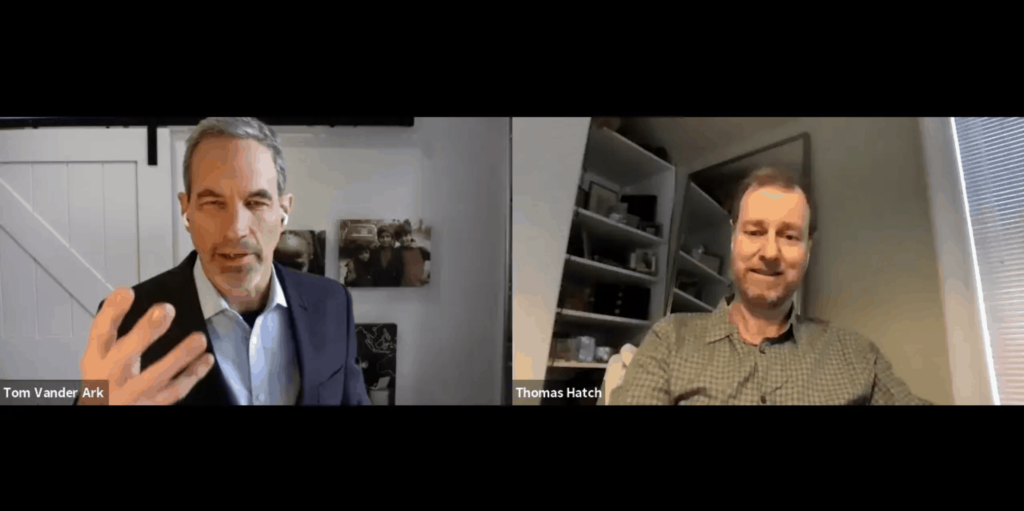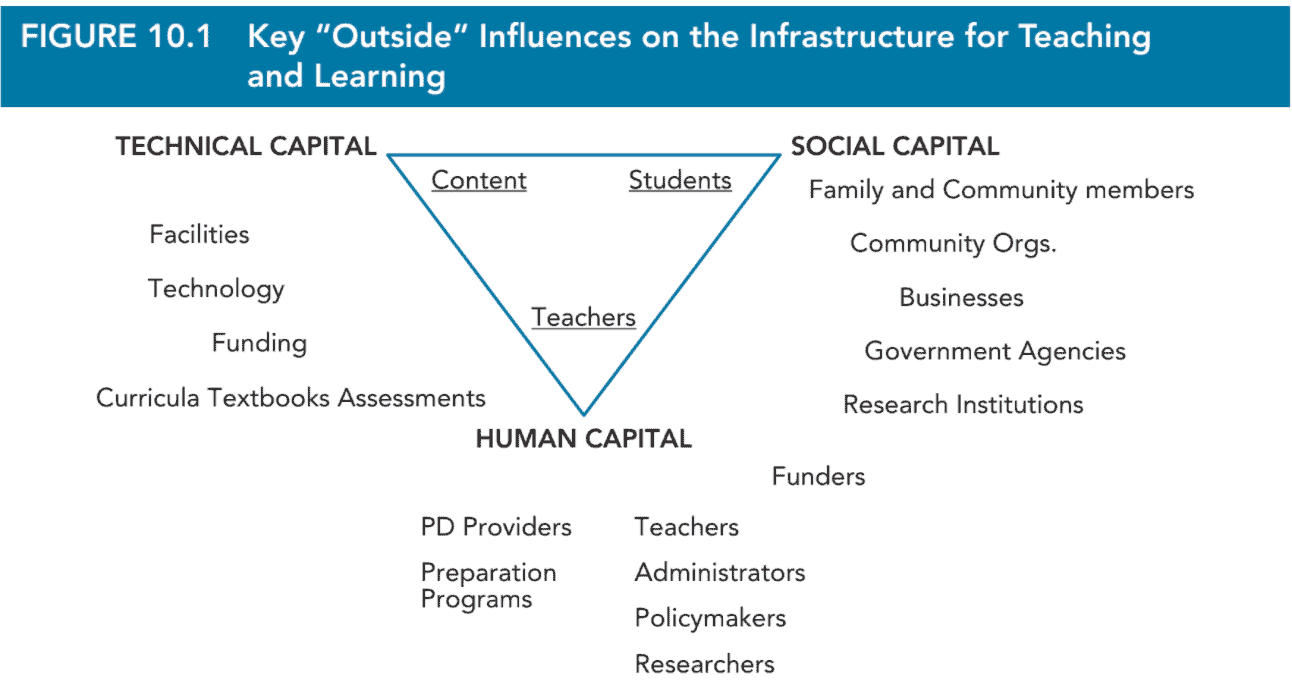Thomas Hatch on The Education We Need and the Future We Can’t Predict

This episode is sponsored by our new report, 20 Invention Opportunities in Learning & Development. Download it here.
On this episode of the Getting Smart Podcast, Tom sits down with Dr. Thomas Hatch, Professor at Teachers College, Columbia University and Director of the National Center for Restructuring Education, Schools, and Teaching (NCREST). Dr. Hatch’s research includes studies of school improvement efforts at the school, district, and national levels. His latest book, The Education We Need for a Future We Can’t Predict focuses on efforts to create more powerful learning experiences both inside and outside schools in developed and developing contexts.
Listen in as Dr. Hatch talks with Tom about the future of powerful learning, micro innovations and change.
Through work with Howard Gardner at the Harvard Graduate School of Education, Thomas formed thoughts on the subject of coherence. This experience in Project Zero helped to show him that the problem wasn’t necessarily in our schools, instead it was in our approach to reform.
Dr.Hatch’s new book The Education We Need for a Future We Can’t Predict focuses on creating “more powerful learning experiences both inside and outside schools in developed and developing contexts.” The first section is on the case for change. “The work has to begin with a common understanding of why we’re doing this work and what we’re headed for,” he said.
Part 2 gets into the barriers to change. Here Dr. Hatch makes it known that we don’t have a realistic understanding of what problems people have… he goes on to lament that we haven’t spent more time thinking about what students will need 20 years from now.
In part 3, he discusses how schools improve and mentions high leverage problems, which are key to building political capital for long-term work. “I’d love to see Universities partner with schools to identify high leverage problems.”
In part 4 he discusses how education changes and mentions microinnovations, the mechanisms needed to address high leverage problems.
In part 5 on systems change, he presents a framework: Capacity building, Coherence, Collective responsibility. Here the framework asks the question: “What does it really take to build capacity.” It takes incentives, it takes caring for the teachers, and it takes relationships.
Dr. Hatch learns through continuing to write blog posts and shorter form reflections on what he’s been observing in the field.

Key Takeaways:
[:10] About today’s episode with Thomas Hatch.
[:42] Tom Vander Ark welcomes Thomas Hatch to the podcast.
[:51] Thomas shares the origin story of NCREST as well as its mission.
[3:01] Tom shares his appreciation for Thomas’s early work on the concept of coherence.
[3:39] Thomas takes us to the early beginnings of his work around coherence and explains what it is and why it is important.
[7:26] Tom congratulates Thomas on his new book, The Education We Need for a Future We Can’t Predict, and shares what he loves about it.
[7:54] Thomas tells about each of the sections in his book, starting with part 1: “Why Should Schools Change?” He headlines the case for change and provides some suggestions on how to create agreements around them.
[11:40] Tom shares the key insights he appreciated in the first section.
[12:27] The second section of the book covers barriers to change. Thomas lists some of the barriers and what we can do to make progress in overcoming them.
[15:39] In section three of Thomas’s book, he writes about how schools can improve. In particular, he focuses on high-leverage problems. Thomas explains what these are, why they’re critical, and shares some examples.
[17:33] The next section of Thomas’s book is on how education can change where he introduces the concept of micro-innovations. Thomas explains what these are and what they can do to move a system agenda forward.
[20:18] Tom shares how 4.0 Schools have been teaching this idea of micro-innovations.
[21:07] Chapter 5 of Thomas’ book is on systems change. Thomas speaks about two critical elements of systems change that are covered in this chapter: capacity building and collective responsibility.
[25:28] Would Thomas agree that it takes a decade-long push on all three of these primary levers to really promote systems change?
[27:44] Thomas reflects on his career, professional learning, and how he has seen education change over the years.
[30:29] Would Thomas say that writing is part of his learning process?
[32:00] What’s next for Thomas?
[34:10] Tom thanks Thomas for joining the Getting Smart Podcast!
Mentioned in This Episode:
- Thomas Hatch’s Website
- The Education We Need for a Future We Can’t Predict, by Thomas Hatch
- National Center for Restructuring Education, Schools, and Teaching (NCREST)
- Bill & Melinda Gates Foundation
- Project Zero
- ATLAS Communities | Project Zero
- The New American Schools Development Corporation (JSTOR)
- Success For All Foundation
- Linda Darling–Hammond
- Coalition of Essential Schools
- Theodore R. Sizer
- 4.0 Schools
- Albemarle County Public Schools
- Getting Smart Podcast Ep. 256: “Jenny Pieratt on Powerful PBL







0 Comments
Leave a Comment
Your email address will not be published. All fields are required.